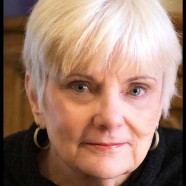
As we close the autumn academic quarter at the University of Washington, I am grading final papers for the enterprise risk management course I have just taught, and at the same time preparing my winter quarter cybersecurity course materials, to begin again on January 3. The winter solstice occurs the day after we turn in grades, and signals both the beginning of winter and the earth’s turn back toward the light. That’s part of the larger world that includes the university. Just as we’ve started to see real activity in our communities, health authorities have recommended wearing masks indoors, given the high number of cases of flu, COVID, and RSV that are overwhelming our hospitals. As we see in so many parts of the public arena, we are not out of the woods yet.
In my winter course on emerging cybersecurity topics, we’ll be discovering the distinction between risk and cybersecurity in practice and policy. We’ll begin with an examination of data protection practices in several countries, then move on to understand cyber risk issues in focused areas like the Internet of Things, the Metaverse, the blockchain, artificial intelligence in surveillance, as well as the weaponization of social media. Along the way, we’ll have lively discussions on privacy and ethics. We will be reading, writing, and presenting on relatively new aspects of existing risk and security methodologies. Students will be writing weekly reflections on the readings and discussions. Expert speakers tied to the topic under discussion will be featured most weeks, and the final project is a ten-page paper as well as a live executive summary presentation in just five minutes.
In the spring quarter, I’ll teach mid-career students in the graduate program a course that focuses on information ethics, policy, and law. And then I’ll retire from teaching in mid-June.
It seems entirely fitting to end this calendar year with a thank you to the 60+ guest speakers over the years, some of whom have spent an hour each year in one of my classrooms for the last ten years. My students never fail to tell me what a profound influence the speakers have had on their careers.
There is one other set of thanks I owe for my connections with and to students. In 2016, two graduate students in the Information School – founders Andy Herman and Colin Andrade -- came to ask me if I would serve as the academic adviser for a university wide chapter of ISACA they wished to form. I said yes and have never been sorry. I got to know students with an interest in risk and cybersecurity from across the university. I have maintained contact with many of the members of the UW-ISACA chapter over the years and am proud of all of them.
Where possible, I have tried to introduce role models from unrepresented groups in the classroom or in public venues. When given the opportunity, I worked with the Jackson School of International Studies to help design a series of six panel discussions around cybersecurity that took place in 2019 – each moderated panel consisted of three women experts in the topic area, one each from academic, the private sector, and from the public sector. Except for the highly collaborative relationships formed with colleagues at the iSchool, it is the one with the Jackson School that stands out -- it too has a focus on cybersecurity and public policy issues.
The ASA website got an upgrade last summer, as did this newsletter. I believe that retirement will offer me ample opportunities for public speaking and writing, as well as time to imagine the shape and content of a new podcast with a more global focus on ethics and risk.
I send my best wishes for a restful holiday season.
Originally Published in ASA News & Notes December 12, 2022









